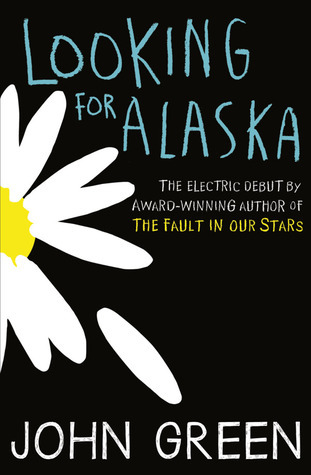
Looking for Alaska
Book Description
Beneath the shadow of a troubled past and the thrill of a new beginning, a group of misfits navigates the stormy waters of friendship, love, and loss at a quirky boarding school. Miles “Pudge” Halter is searching for his Great Perhaps when he meets the magnetic and enigmatic Alaska Young, whose wild spirit pulls him into an unforgettable adventure. Secrets unravel and hearts collide as they confront life’s biggest questions, leading to choices that could change everything. Can one spark ignite a journey of self-discovery, or does fate have other plans in store? What happens when everything you want is just out of reach?
Quick Book Summary
"Looking for Alaska" follows Miles "Pudge" Halter as he transfers to Culver Creek Preparatory School in search of a deeper meaning in life—his "Great Perhaps." At Culver Creek, Miles befriends the intelligent and rebellious Alaska Young, who captivates him with her impulsive spirit and troubled depths. Alongside their close-knit group, Miles experiences the thrills, mischief, and philosophical debates of adolescence. The narrative is shaped by a pivotal event that forever alters the lives of the group. Through their collective grief, the characters grapple with the complexities of friendship, love, responsibility, and forgiveness. John Green's novel is both a tender coming-of-age story and a profound meditation on the ways we understand loss and ourselves.
Summary of Key Ideas
Table of Contents
The Search for Identity and Meaning
Miles "Pudge" Halter begins his journey by leaving the comfort of his home for Culver Creek, a boarding school promising excitement and self-discovery. Seeking what he calls the "Great Perhaps," Miles quickly falls in with a group of misfit students, most notably Alaska Young and his roommate, the Colonel. Alaska stands out for her intelligence, beauty, and unpredictability, becoming the gravitational center of Miles' new life. The dynamic among the friends is marked by late-night philosophical conversations, creative pranks, and a mixture of shared confidences and secrets, all set against the backdrop of their secluded, rule-bound school.
The Impact of Friendship and First Love
As Miles gets closer to Alaska, he becomes enchanted by her enigmatic nature. She inspires him to break out of his shell, all while revealing glimpses of deep vulnerability and pain. The group’s tight bonds are tested by romantic tensions, unspoken feelings, and the exhilaration of adolescent rebellion. Alaska's complexity and impulsiveness captivate Miles, but also leave him struggling to truly understand her. The sense of youthful invincibility persists until a devastating tragedy shatters the group's sense of security and challenges the meaning of their choices.
Loss, Grief, and Coping with Tragedy
The sudden loss of Alaska acts as a catalyst that propels Miles and his friends into a spiral of grief, confusion, and guilt. Each member of the group processes the tragedy differently, grappling with questions of responsibility and what might have been done to prevent it. Their search for answers drives them to piece together the circumstances of her death, reflecting on Alaska’s past and the inner turmoil she kept hidden. The process is complicated by their own feelings of guilt — both warranted and irrational — as they try to come to terms with how little they truly knew her.
The Role of Guilt and Forgiveness
Through their collective mourning, each character embarks on a path toward healing and self-understanding. The weight of their loss gradually shifts from paralyzing pain to an impetus for reflection and forgiveness, of both Alaska and themselves. The characters confront moral ambiguity, learning that closure does not always come with clear answers. Instead, they realize the importance of cherishing memories, embracing forgiveness, and making peace with the unknowable.
Coming of Age and Personal Growth
By the novel’s end, Miles has transformed through his experiences of love, loss, and friendship. He finds a new perspective on the "Great Perhaps," recognizing that life’s value comes as much from its unanswered questions as from its moments of clarity. "Looking for Alaska" ultimately explores the messy, beautiful reality of coming of age, emphasizing compassion and acceptance over certainty and demonstrating the indelible impact people leave on one another, both in life and in memory.
Download This Summary
Get a free PDF of this summary instantly — no email required.





